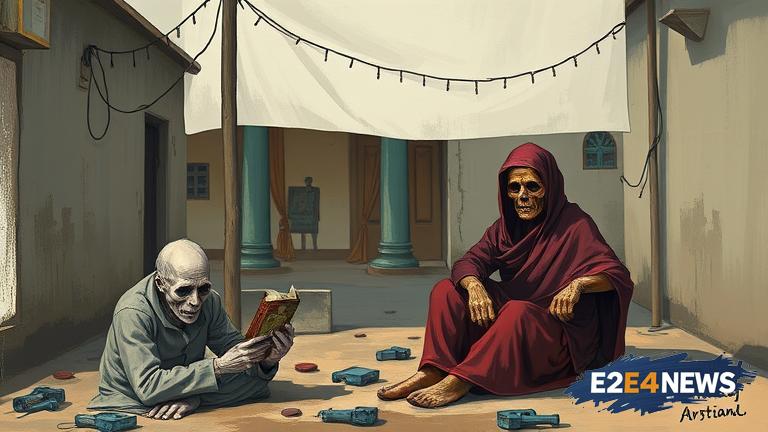In a shocking revelation, it has come to light that numerous Indian citizens are being incorrectly listed as deceased in voter lists, effectively disenfranchising them and raising questions about the accuracy of the country’s electoral rolls. This bizarre phenomenon has left many citizens bewildered and frustrated, as they struggle to rectify the situation and assert their right to vote. The issue is particularly pronounced in rural areas, where access to administrative services and awareness about the voter registration process are limited. As a result, many individuals are only discovering their ‘deceased’ status when they attempt to cast their ballots or access other government services. The problem is attributed to a combination of factors, including outdated voter lists, inadequate data verification, and inefficient communication between government agencies. In some cases, the errors are due to simple clerical mistakes, such as incorrect spellings or dates of birth. However, in other instances, the reasons are more complex, involving issues like duplicate voter IDs or incorrect updates to the electoral rolls. The consequences of being marked as ‘dead’ can be severe, ranging from denial of voting rights to difficulties in accessing essential services like healthcare and social welfare benefits. Affected citizens are often forced to navigate a labyrinthine bureaucratic process to correct the errors, which can be time-consuming and costly. The Indian government has acknowledged the issue and is taking steps to address it, including the introduction of online voter registration and verification systems. Nevertheless, much work remains to be done to ensure the accuracy and integrity of the country’s electoral rolls. The incident highlights the need for greater transparency and accountability in the management of voter data, as well as improved communication between government agencies and citizens. It also underscores the importance of voter education and awareness initiatives, particularly in rural and disadvantaged areas. As India continues to grapple with this challenge, it is essential to recognize the significance of accurate voter lists in maintaining the health of the country’s democracy. The right to vote is a fundamental aspect of citizenship, and it is the responsibility of the government to ensure that all eligible citizens are able to exercise this right without hindrance. In conclusion, the ‘dead’ voter conundrum is a wake-up call for India’s electoral authorities, highlighting the need for urgent reforms and improved governance. By addressing this issue, India can strengthen its democratic institutions, promote greater citizen participation, and ensure that the voices of all its citizens are heard. The country’s electoral system is a cornerstone of its democracy, and it is essential to protect and preserve its integrity. Ultimately, the resolution of this issue will require a sustained effort from government agencies, civil society organizations, and citizens themselves. Only through collective action can India hope to eradicate the problem of ‘dead’ voters and create a more inclusive, transparent, and accountable electoral system. The future of India’s democracy depends on it. The government must take concrete steps to address the issue, including the implementation of more efficient data verification processes and the provision of greater support to affected citizens. Furthermore, there is a need for increased awareness and education about the voter registration process, particularly in rural and disadvantaged areas. By working together, India can overcome this challenge and create a more robust and inclusive democratic system. The country’s citizens deserve nothing less. In the end, the ‘dead’ voter issue is a test of India’s commitment to democratic values and its ability to ensure that all citizens are able to participate fully in the electoral process. It is a challenge that must be met with urgency and determination, lest the country’s democratic institutions be undermined. The world is watching, and India’s response to this crisis will be closely scrutinized. The country’s reputation as a vibrant and inclusive democracy hangs in the balance.
